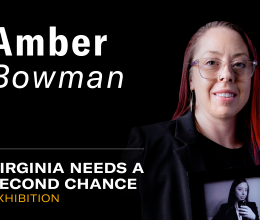Richmond, VA – U.S. District Court Judge Richard L. Williams today ordered an evidentiary hearing in the ACLU of Virginia’s case challenging the Virginia Department of Corrections’ requirement that inmates keep their hair short and beards shaven. The order comes less than two weeks after a court hearing in which the ACLU of Virginia, which represents Muslims and Rastafarians held in Virginia’s prisons, argued that DOC’s policy violates the religious rights of inmates whose faiths mandate hair on their heads or faces.
Judge Williams ruled that the hair grooming policy places a substantial burden on the right of prisoners to practice their religion, meaning that DOC can keep the policy only if it can prove that it is essential to maintaining prison security.
“We are pleased to have an opportunity to put on more evidence in this case,” said ACLU of Virginia executive director Kent Willis. “If the entire federal prison system believes that grooming policies permitting prisoners to follow their religious beliefs are not a security risk, one has to wonder what could justify such a policy in Virginia.”
The DOC grooming policy, which was enacted in 1999, requires all inmates to have their hair “cut above the shirt collar and around the ears” and to be no more than one inch in “thickness/depth.” Inmates must be clean shaven, except for mustaches, unless they can obtain a medical exception. The policy contains no religious exemptions, meaning many incarcerated Muslims, Native Americans, and Rastafarians are forced to abandon central tenets of their religious beliefs or face punishment.
The ACLU lawsuit claims that DOC’s policy violates the Religious Land Use and Institutionalized Persons Act, or RLUIPA, which was passed by Congress in 2000 to protect the right of persons to practice their faiths despite incarceration.
The case, originally filed in February 2003, was put on hold while the constitutionality of RLUIPA was challenged in a separate lawsuit. In December 2003, however, the Fourth Circuit Court of Appeals held that RLUIPA did not violate the First Amendment mandate for separation of church and state, thus allowing the current case to proceed. Later, in a separate case, the U.S. Supreme Court upheld the constitutionality of RLUIPA.
ACLU of Virginia legal director Rebecca K. Glenberg and Stephen Rosenfield of Charlottesville represent five Virginia inmates who were punished for not complying with the policy or who were forced to comply with it to avoid punishment. Two of the inmates are Rastafarians whose religious beliefs oblige them to allow their hair to grow, and three are Muslims who are prohibited from cutting their beards.
Contacts: Kent Willis or Rebecca Glenberg, 804/644-8022







